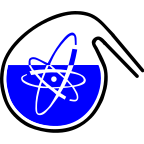Speaker
Description
Below ground level at Prague Castle there is several remainders of ancient buildings and structures which have been of interest of intense archaeological research since thirties of the 20th century. One of them, part of the so-called Small Excavations of the Third Courtyard is the Romanesque corridor. As most of these underground structures, it is not accessible to public. The passage was part of the Romanesque bishop's area at Prague Castle, connecting the Basilica of St. Vitus, Wenceslas, Adalbert and the Virgin Mary and the Chapel of St. Bartholomew. The last chapel stood in the centre of the present Third Courtyard. According to current research, the corridor is a building from the 12th century and is believed to disappeared during the 14th century.
As an alternative to direct dating of mortars, radiocarbon dating of charcoals collected in the walls of the corridor was performed with MILEA accelerator mass spectrometry system at Řež by Prague. The charcoals are believed to originate from wood used in lime burning. 28 charcoals were found in surface mortar layers and 8 charcoals were extracted from depth probes into the mortars. Out of total 36 charcoals, five was of under minimal sufficient weight, one was discarded as a stone and one as a contaminated with mold, 14 dissolved during chemical pretreatment and the remaining 15 was successfully dated.
The results are discussed together with specific contexts of the sample points.
